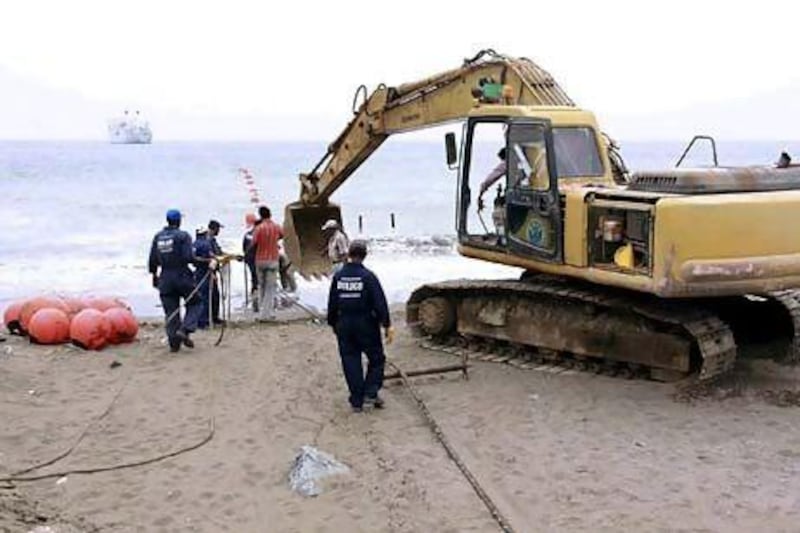The UAE's telecommunications regulator has published an emergency plan with "red alert" classification in the event of a natural disaster, terrorist incident or network breakdown.
Four levels of alert have been established by the Telecommunications Regulatory Authority (TRA), the most severe of which is "red", which signifies "imminent or actual major disruption to the telecoms network requiring immediate action".
Etisalat and du, the local telecoms operators, have been given six months to comply with the National Emergency Plan, which will help to restore telecoms services in the event of a disaster. The TRA will also be allowed to assume control of the telecoms network in the event of an emergency.
It is the first business sector to draw up such a plan, which fits into a framework set by the UAE's National Crisis and Emergency Management Authority.
"We have to be ready during crises and during emergencies," said Mohamed al Ghanim, the TRA's director general. "This is the first national emergency plan for a specific sector in the UAE, and we are so proud that the telecoms sector is the first."
Natural disasters, sabotage and cyber attacks have all been identified as potential threats to UAE telecoms networks. Other threats include the loss of electricity, staff absences, software failure and the breakdown of infrastructure.
The UAE has been hit by several instances of disruption to internet services because of damaged undersea internet cables. A severed cable this year disrupted services across the Gulf, with about 30 per cent of the internet capacity offered by du affected.
The plan drawn up by the TRA addresses the responsibility of dealing with such incidents, and the priority-user groups, such as government and health agencies, in the restoration of telecoms services. Other priority groups include the Armed Forces, emergency services and the petroleum production industry. "We have sometimes worked in crisis when a cable cut happens. But the operators have to be ready if more than that happens, for example [if] an earthquake or flood happens, then the communications system has to function and has to continue working," said Mr al Ghanim.
While both Etisalat and du already have emergency plans, the TRA plan sets out a framework so the operators can collaborate in the case of an emergency.
"We need to speak the same language," said Mr al Ghanim. "It has to be compatible with the bigger picture."
Osman Sultan, the chief executive of du, said he did not expect compliance with the plan to represent any additional cost.
"I don't see that there is a matter of extra costs. There will not be major investments," said Mr Sultan. "We will not have to change system or platforms. It is to ensure that the process is rolled out within the company."
Abdulrahman Almulla, the senior vice president of regulatory affairs at Etisalat, said the plan set out how the operators would "use each others' networks in the case of emergencies".
He said the cost of compliance would be "minuscule" to Etisalat. "Technically, we are all ready for any emergencies. These are just procedural processes that have been agreed with the TRA and with the higher authority."
Mr al Ghanim said it was "premature" to discuss fines or penalties if the telecoms operators did not comply with the emergency plan. However, he said operators would be held responsible if they did not follow the emergency plan.
Saif bin Ghelaita, the director of technologies and standards at the TRA, said the operators' compliance with the plan would be monitored.
"The TRA will conduct training and exercises to check the preparedness of the licensees," said Mr bin Ghelaita. "Thereafter there will be some auditing that the TRA will undertake to check the compliance of the licensees with the plan."
He said a memorandum of understanding would be signed between the TRA and the two telecoms companies.





